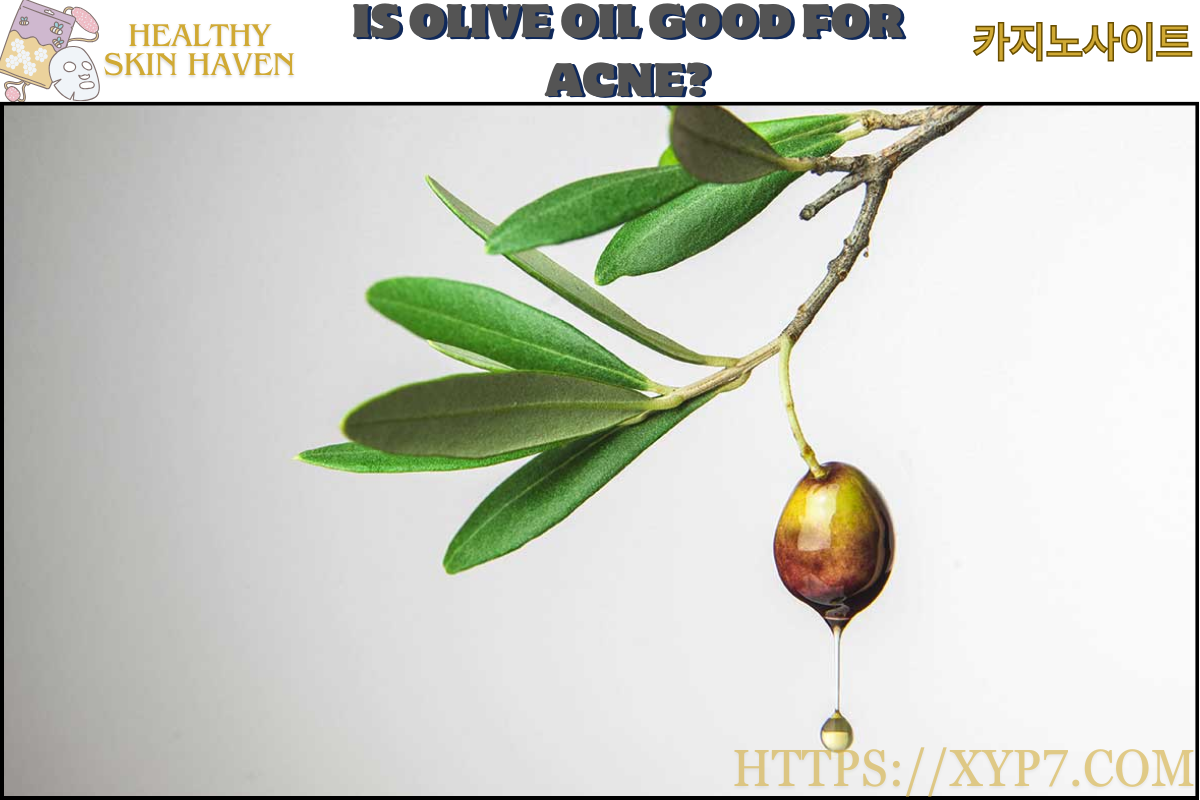Is Olive Oil Good for Acne? Although sebum, or oil, accumulates on the skin and causes acne, some people vouch for the effectiveness of oil-based skin care products. There are a ton of “oil cleanser” recipes available online.
The “like dissolves like” theory underpins the fundamental idea of the oil-cleaning technique. To put it another way, applying oil to the skin will dissolve any oil that has accumulated and solidified due to dirt and other impurities.
Advocates of the oil-cleansing method have ranked olive oil as one of their top recommendations. This is a result of the high vitamin and antioxidant content of olive oil.
Are the claims made for the oil-cleaning method true? Do you apply olive oil to your skin?
RELATED: All About the Oil Cleansing Process

How it functions
As your pores fill with dead skin cells and oil (sebum), acne develops.
The idea behind oil cleansing is that if you completely dry out your skin, it will go into overdrive and produce a lot more oil. Because oil cleansing retains moisture and isn’t unduly drying, it improves skin balance.
Because of its high vitamin and antioxidant content, proponents of the oil-cleansing method suggest using olive oil on all skin types. Almond, castor, grapeseed, and jojoba oils are also thought to be advantageous. However, coconut oil is generally not advised.
Technique
The process of oil cleansing with olive oil is quite easy to follow:
- Prepare your olive oil or blend it with other oils per a recipe; alternatively, you can buy a premade oil cleanser from a particular brand.
- After pouring the oil into your palm, cover your entire face with it.
- For a few minutes, rub the oil or mixture all over.
- Give the oil on the face one more minute to sit there.
- To remove oil from a washcloth, submerge it in warm water that is not too hot to use on the face.
- Place and hold the washcloth over your face for 15 seconds.
- Wipe the oil from your face slowly.
- Continue until the skin is completely free of oil.
This is something you should do daily, but ideally not more than once. You might not see results for a week or two.
Double cleansing
Cleaning your face twice in a row, first with an oil cleanser and then again with a conventional water-based cleanser, is known as double cleansing.
Proponents of this kind of cleansing claim that it guarantees you get rid of the regular dirt and perspiration that accumulates throughout the day in addition to oil-based makeup and dirt on your face.
Considerations
In general, using olive oil on the skin is safe. However, there is a slight chance of experiencing an allergic reaction to the oil, just like with most products.
Before using olive oil on your skin, consult your dermatologist because it may cause irritation and clogged pores.
Additionally, before using olive oil on your face, perform a patch test on a small area of your skin. Apply some oil to your inner arm in a spot the size of a dime. It should be safe to use if there is no irritation after a day.
When using warm water to remove the oil, exercise extra caution. If the water you’re using is excessively hot, you run the risk of burning yourself.
The lesson learned
While cleansing with olive oil may be effective for some, it may exacerbate skin conditions for others. Olive oil probably won’t hurt you to try, but if you’re prone to breakouts, you might want to stay away from oil-based cleansing completely.
Any evidence that goes along with olive oil cleansing for acne is anecdotal and inflated by internet recipes and blog posts. The majority of dermatologists advise utilizing gentle, water-based cleansers.
Because soap is designed to mix with both water and oil, it’s a great way to remove oil from the skin. Select a mild cleanser or soap. Dermatologists advise following up with a moisturizer that isn’t oil-based.
It probably won’t hurt to try applying olive oil or other oils to your skin. Try something else if your skin breaks out or if, after a week or two, you don’t see any improvement 카지노사이트.
Schedule a dermatologist appointment if acne is a concern for you. They can identify a course of action that works for you, either alone or in combination with other therapies.
